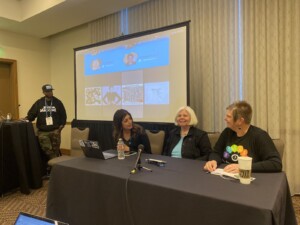The Long Slide to Happiness?
We really wouldn’t have to worry too much about states that are letting their accountability standards slip if we empowered teachers and students to use technology that gave personalized attention to each kind of intelligence and each kind of learning method.
Rick Hess and Paul Peterson point out:
five states that previously had their accountability systems in place are letting their standards slide. The biggest decline was in Arizona, with significant drops also found (in order of magnitude) in Maryland, Ohio, North Dakota, and Idaho. If parents in these states read that students are making great strides on state proficiency tests, they would be advised to consider the message with a healthy dose of skepticism. At least some of the reported student gains appear to be the product of gamesmanship.
In addition, states with already low standards have done nothing to raise them. Oklahoma and Tennessee once again share the cream puff award, with both states earning Fs because their self-reported performance is much higher than can be justified by the NAEP results. States with nearly equally embarrassing D minuses included Mississippi, Georgia, and North Carolina. Once again, we discover that Suzy could be a good reader in North Carolina, where standards are low, but a failure in neighboring South Carolina, where standards are higher.
But they have nothing to say in this article about the benefit that more granular teaching methods and assessment methods would have in giving states the confidence to meet goals.
We keep thinking of taking what is already being done and tweaking it until it works. There’s nothing wrong with that model if we know that the existing machine we are trying to tune is actually a long-term high-performing engine. But it’s not, and we know that. The lack of overall, across the spectrum success for all of our children shows that this engine is not knocking right. Something is wrong with much more than the valves. It’s not an add more oil, or more teacher pay problem.
It’s more like we have to enable better thinking by enabling students and teachers to use different tools. This is something that I don’t hear people talking about all that often. Why don’t we let students hack the system, in cooperation with teachers, to learn the things that they know they must learn to work in the world that they are learning about already in social media?
It’s a global world. Do national standards actually help American students become high-performing world learners?






0 Comments
Leave a Comment
Your email address will not be published. All fields are required.